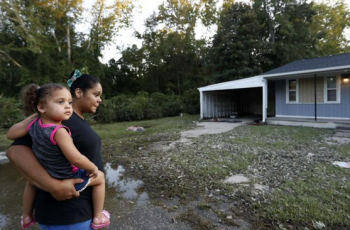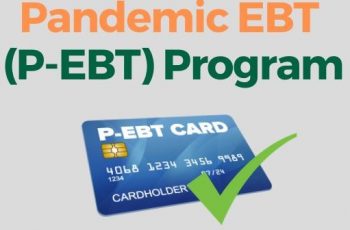Due to the Coronavirus (COVID-19) pandemic spreading across the globe, the public has been urged to cancel all their upcoming event plans. Base on the situation, a number of school closures, event cancellations, and businesses have temporarily shut down to help stop the spread of the virus. So what impact does that mean for food stamp recipients or what are the Coronavirus effects on Food Stamp?
As of the time of this crisis, low-income Americans face the highest risk of impact due to the lack of access to healthcare and nutritional food. But, relief will soon be on the way. Speaker of the House, Nancy Pelosi has been working on a bill (The Families First Coronavirus Response Act (FFCRA)) to help provide support to low-income Americans facing a crisis during the Coronavirus pandemic. This will provide support and relief to families that are at-risk for the Coronavirus.
What Are The Symptoms Of Coronavirus
According to the Centers for Disease Control and Prevention (CDC), Coronavirus symptoms can range from mild to severe. Symptoms of fever, cough, and shortness of breath may appear 2-14 days after exposure.
Symptoms are more severe in individuals classified as “at-risk.” The highest-risk includes individuals with underlying conditions, struggle with obesity, smoke, and are older in age.
READ ALSO: How To Get Emergency Food Stamps/SNAP in Your State
What To Do if you have Coronavirus
Currently, there is no vaccine to prevent coronavirus disease. So, it’s important that you limit your exposure. The CDC recommends that you wash your hands often with soap and water for at least 20 seconds especially after you have been in a public place, or after blowing your nose, coughing, or sneezing.
Also, disinfect surfaces frequently, stay home, avoid public areas, and do not use public transportation. Nevertheless, also avoid close contact with people who are sick.
If you think you may have Coronavirus, you are instructed to contact your local state health department. You may find the closest Coronavirus testing location near you.
Read through to know more about the Families First Coronavirus Act and how the Coronavirus affects food stamp recipients.
What is The Families First Coronavirus Response Act?
The Families First Coronavirus Response Act is set to provide assistance to low-income American families during the Coronavirus outbreak. The main aim of the bill is to offer and provide support and peace of mind to those families that are considered to be the first priority during a crisis.
Low-income families that are currently receiving government assistance are the most at-risk because of their lack of access to resources. According to a statement released by Speaker of the House, Nancy Polosi, the Families First Coronavirus Response Act will provide the following assistance:
- Free Coronavirus Testing
The Families First Coronavirus Response Act will provide free Coronavirus testing to anyone that needs it–including the uninsured. Testing for COVID-19 is available in every state.
- Increased Medicaid Funding
The legislation increases the federal share of Medicaid funding by eight percentage, but only if states maintain or increase current eligibility and other program standards. This is an effort to help support states as they experience increased Medicaid spending.
- Paid Emergency Leave
The paid emergency leave included in the Families First Coronavirus Response Act covers up to two weeks of paid sick leave and up to three months of paid family and medical leave. This gives individuals affected by the Coronavirus to stay home and get better. Furthermore, it also reduces the exposure when it comes to putting more people at risk.
ALSO READ: Coronavirus Pandemic Stops Trump Food Stamps Cuts
Paid Emergency Leave benefits will equal two-thirds of prior average wages. These benefits are not taxable and include a monthly cap of $4,000.
- Enhanced Unemployment Insurance
The legislation provides a temporary increase in the distribution of unemployment insurance (UI) benefits. This effort will extend protections to furloughed workers and provide economic security to those that may lose their job as a result of the pandemic.
Enhancing the Unemployment Insurance initiative will also ease the UI eligibility requirements for those that have been affected by Coronavirus.
- Strengthened Food Security Initiatives
The Families First Coronavirus Response Act will expand several food initiative programs in an effort to support those facing food insecurity. This is the biggest thing that food stamp recipients need to pay attention to.
Key Food Security Initiatives
Here’s how the bill to fight Coronavirus effects on food stamp recipients.
- Households with children receiving free school meals will be provided with food benefits
- Food banks will receive increased food supply and storage for affected households
- The Senior SNAP will provide additional home-delivered meals to low-income seniors
- Able-bodied adults without children do not have to work to receive food stamps
- WIC assistance is available to individuals at-risk of losing their job.
Coronavirus effects on Food Stamp Recipients
-
Children Receiving School Meals
Due to school closures as a result of the COVID-19 outbreak, kids that are receiving assistance cannot get their normal meal programs. But the Families First Coronavirus Response Act will provide temporary assistance benefits to those households with children that receive free or reduced school meals. The Supplemental Nutrition Assistance Program (SNAP) will distribute the benefits.
-
Food Banks to Increase Capacity
The legislation will provide the Emergency Food Assistance Program (TEFAP) with a $400 million increase in funding. This will help local food banks get more food and increase their storage capacity for that food. This aims to provide additional assistance to more local low-income families.
-
Home Meal Delivery for Seniors
Low-income or disabled seniors that have been affected by Coronavirus or will be provided with home-delivered meals. The Senior Nutrition Program will be funded with $250 million, which will provide 25 million additional delivered meals to low-income seniors.
-
Work Requirements for Able-Bodied Adults without Children
The Families First Coronavirus Response Act will postpone the work requirements bill for able-bodied adults without dependents (ABAWD). The bill scheduled to go into effect on April 1, 2020, requires ABAWD food stamp recipients to work a minimum of 20 hours per week. The SNAP work requirements will not go into effect during the Coronavirus public health crisis.
-
Increased Assistance for Women, Infants & Children
The Special Supplemental Nutrition Assistance Program for Women, Infants, and Children (WIC) is expected to receive a cash surge of $500 million. This will help support those parents with young children that might lose their jobs or get laid off as a result of the Coronavirus.
For more updates on coronavirus Effects on Food Stamp, follow us on Facebook.
Source: igeorgia

